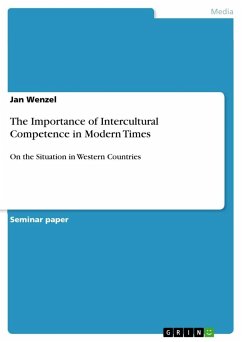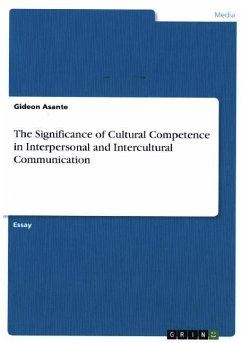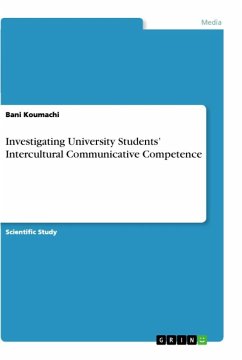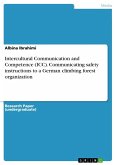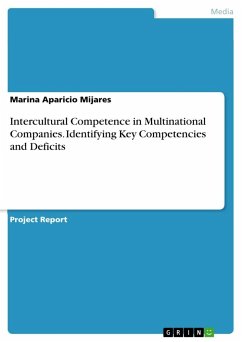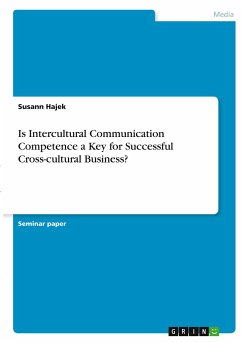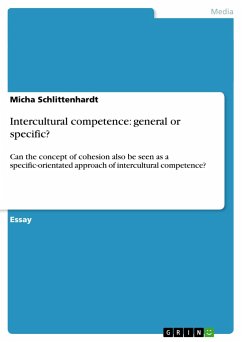Seminar paper from the year 2019 in the subject Communications - Intercultural Communication, grade: 2.0, Fresenius University of Applied Sciences Hamburg, language: English, abstract: The present work analyzes the importance of intercultural competence in modern times with a special focus on Germany. In my term paper I want to give a definition of what is intercultural competence and culture and show the constituent elements of intercultural competence. In the further course I want to examine Hofstede's six dimensions of intercultural competence on the example of Germany and show, why this model can partly explain the success of the German economy. Finally, I want to go into the criticism of Hofstede's dimensions and the problem that there is no global understanding of intercultural competence. In the end I consider the results of my term paper.All over the world, even in Europe, there is an increasing awareness of the potential for conflicts and opportunities. They are perceptible in many different parts of life, for example in the society, in professional business or in private life. The process of pluralization which has its origin in the internationalization is a continuous increasing process of the 21st century. Because of that the religious, ethnic and cultural heterogeneity of the society will rise and the cohabitation of people from all over the world will increase too. In this context, the ability to deal constructively on an interpersonal level with cultural diversity and many attitudes, such as norms, values and ways of life, is getting more important every day. It´s necessary to mention that the ability to interact with different cultures cannot avoid conflicts between groups and individuals entirely, but, when they are inevitable, this social ability allows individuals to deal better with conflicts.The results of Hofstede's study about culture can help leaders to understand their own cultural alignment and preferences. There are differences in every society about what they want from each other or their leaders and these findings can help to improve the style of every individual to be more effective in different cultural situations. In general, information about the culture or leadership of other nations or people can be used to improve global team effectiveness and a stress-free working atmosphere.

